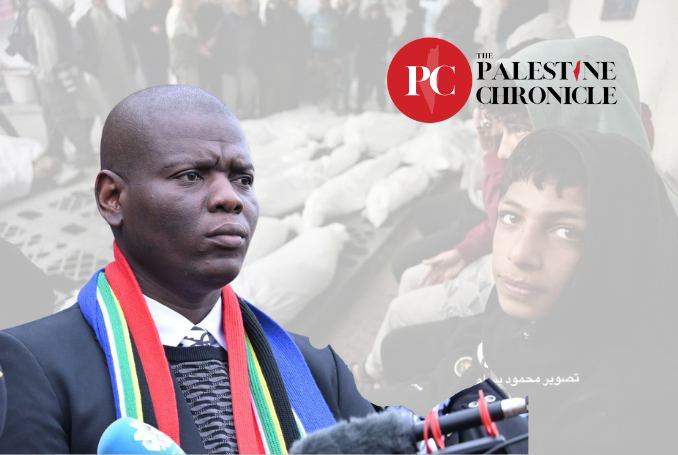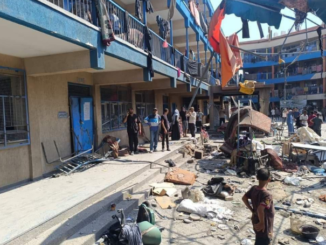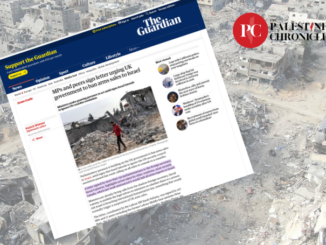
Lamola, who previously served as the minister of justice and correctional services, highlighted that South Africa consistently raises the issue of Palestinian suffering through various multilateral platforms.
South Africa’s newly appointed Foreign Minister Ronald Lamola announced on Thursday that the country will continue to leverage global institutions to defend Palestinian rights and ensure the equitable application of international law for all.
In his first public discussion on foreign policy in Cape Town since his appointment earlier this month, Lamola stated: “South Africa will continue to do everything within its power to preserve the existence of the Palestinian people as a group.”
He emphasized that South Africa will collaborate with global institutions to end all acts of apartheid and genocide against the Palestinian people.
Lamola reaffirmed South Africa’s commitment to walking with Palestinians towards achieving their collective right to self-determination, citing the country’s genocide case against Israel at the International Court of Justice as a guiding principle.
Lamola, who previously served as the minister of justice and correctional services, highlighted that South Africa consistently raises the issue of Palestinian suffering through various multilateral platforms, including the United Nations, advocating for access to humanitarian aid for the people of Gaza.
He noted that South Africa spearheaded the referral of the Palestinian situation to the International Criminal Court by six states.
“As our foreign policy is anchored on our history of solidarity with those struggling against oppression and occupation, we will continue to support the people of Western Sahara in their quest for self-determination,’’ Lamola added.
Lamola emphasized that multilateralism is a key policy for South Africa, which has utilized its membership in various international forums to advance the African agenda and strive for a more rules-based multilateral system and a more just and equitable world.
He reiterated South Africa’s consistent advocacy for the reform of global governance institutions, such as the UN Security Council, to better reflect current global political and economic realities and to be more representative and responsive to the needs of the Global South.
Plausible Risk of Genocide
On December 29, the South African government brought the case against Israel before the ICJ, accusing it of “genocidal acts” in its military campaign in Gaza.
Public hearings on South Africa’s request were held on January 11 and 12.
In January, the ICJ called on Israel to avoid actions that could lead to genocide and to facilitate humanitarian access to Gaza.
A few weeks later, South Africa requested additional measures in response to Israel’s announced intention to attack Rafah, but the court rejected this request.
At the beginning of March, South Africa renewed its request for emergency measures against Israel.
Later that month, the court ordered Israel to ensure the delivery of “urgent humanitarian aid” to Gaza, in light of “a famine that has begun to spread” in the war-torn Strip.
Ongoing Genocide
Currently on trial before the International Court of Justice for genocide against Palestinians, Israel has been waging a devastating war on Gaza since October 7.
According to Gaza’s Ministry of Health, 38,345 Palestinians have been killed, and 88,295 wounded in Israel’s ongoing genocide in Gaza starting on October 7.
Moreover, at least 11,000 people are unaccounted for, presumed dead under the rubble of their homes throughout the Strip.
Israel says that 1,200 soldiers and civilians were killed during the Al-Aqsa Flood Operation on October 7. Israeli media published reports suggesting that many Israelis were killed on that day by ‘friendly fire’.
Aftermath of Shejaiya Invasion Revealed – Israeli Forces Attack Tel Al-Hawa
Palestinian and international organizations say that the majority of those killed and wounded are women and children.
The Israeli war has resulted in an acute famine, mostly in northern Gaza, resulting in the death of many Palestinians, mostly children.
The Israeli aggression has also resulted in the forceful displacement of nearly two million people from all over the Gaza Strip, with the vast majority of the displaced forced into the densely crowded southern city of Rafah near the border with Egypt – in what has become Palestine’s largest mass exodus since the 1948 Nakba.
Later in the war, hundreds of thousands of Palestinians began moving from the south to central Gaza in a constant search for safety.
(PC, Anadolu)









Why is South Africa still sending coal to Israel? More reporting needs to be done on this and they must answer for this hypocrisy.